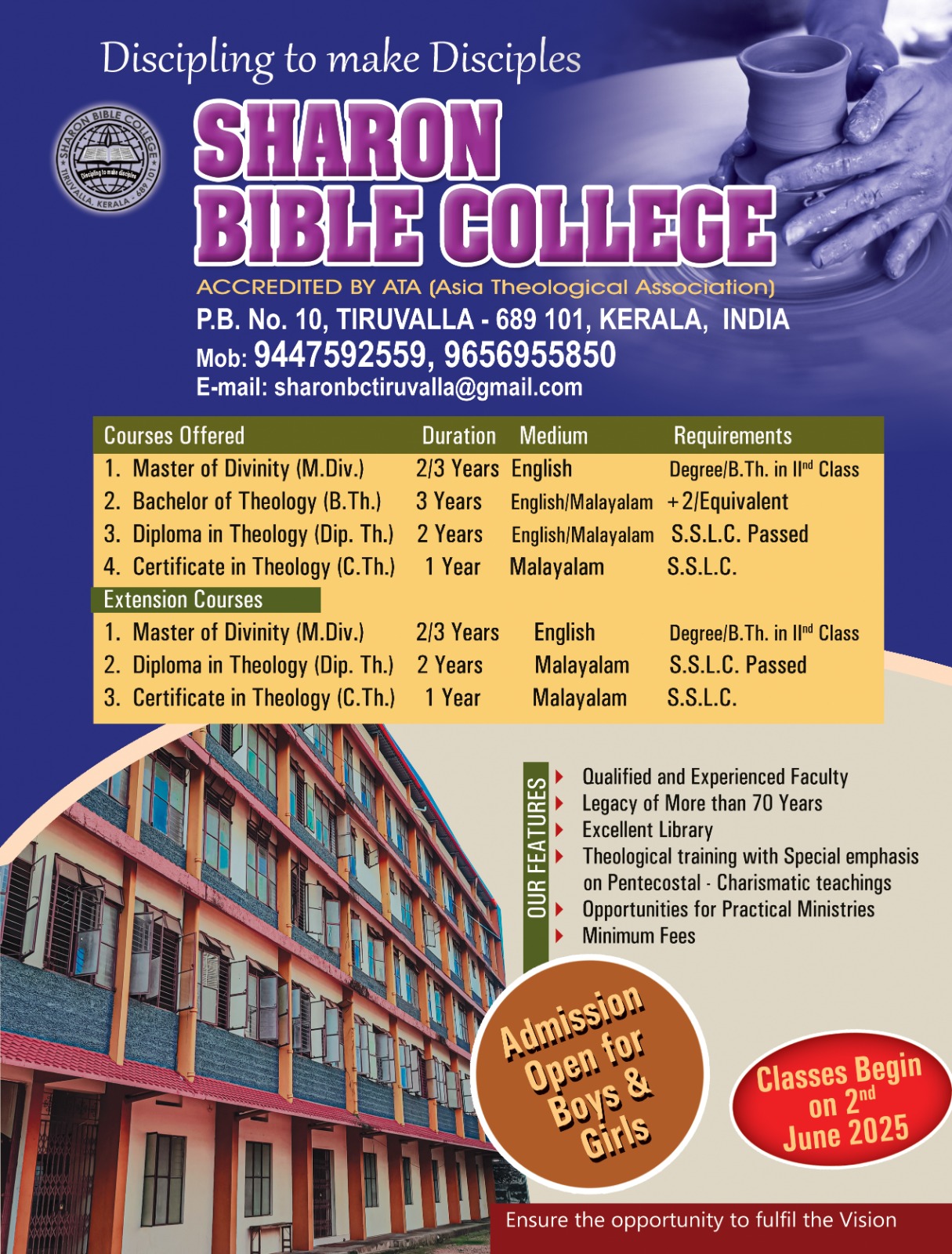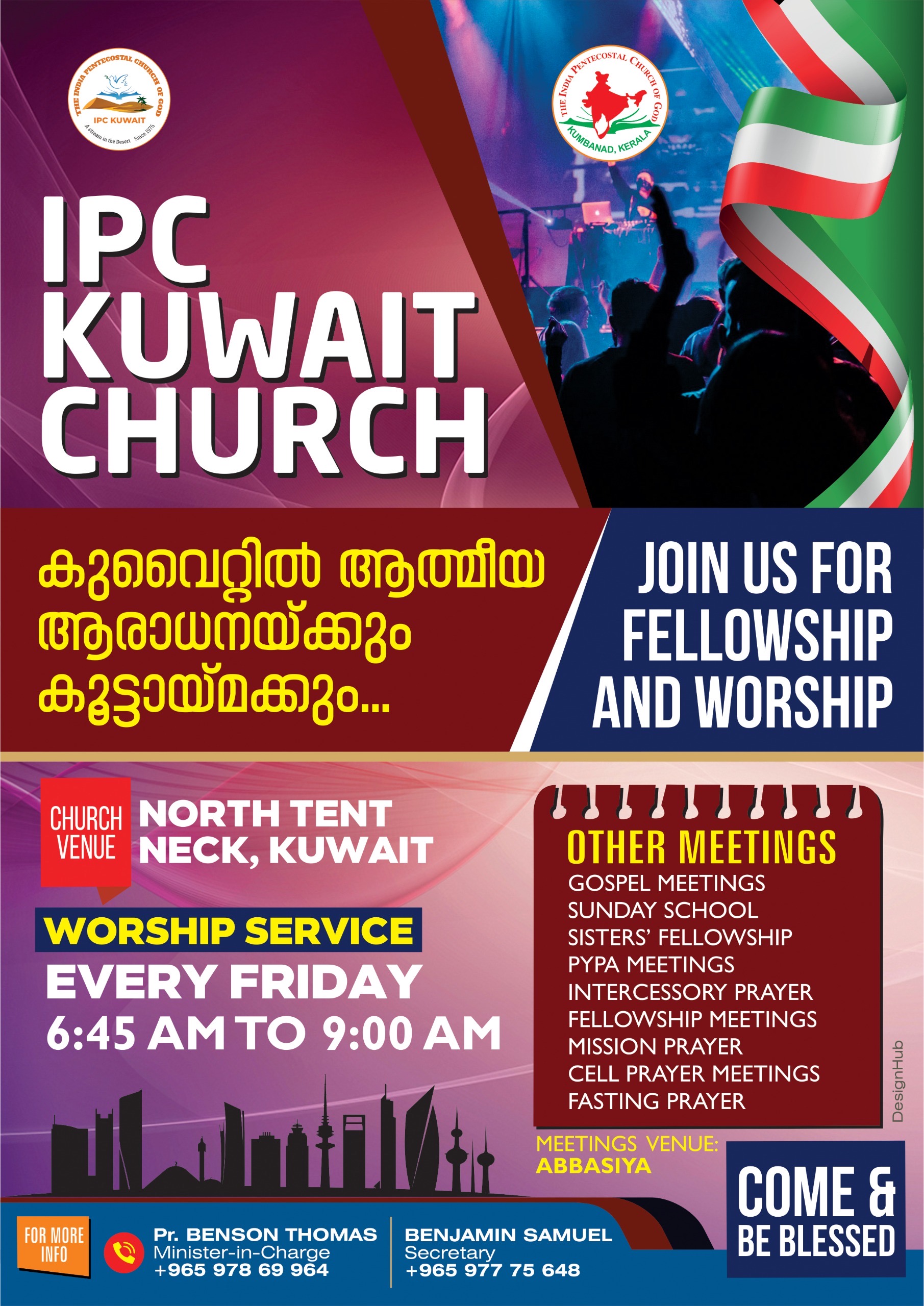Unknown Mothers: Mirroring the Unseen God. | Pr. Ribi Kenneth, UAE
In Christian history, few figures loom as large as John and Charles Wesley. John, the founder of Methodism, radically reshaped 18th-century England’s spiritual landscape, while Charles, gifted in songwriting, left an indelible mark on Christian worship, crafting over 6,500 hymns—a feat unmatched by even today’s greatest worship leaders
However, it would be inaccurate to attribute the birth of Methodism solely to John or credit Charles with the mammoth stack of hymns. Shrouded in the shadows of their prominence lies a quiet figure, often overlooked and unknown: Susanna Wesley, their mother. She never preached a sermon, published a hymnal, or founded a church, yet her enigmatic presence, her toiling hand moulding their character, her relentless pursuit of shaping a godly home, birthed and guided the movements that impacted history—the same history we now perceive with grandeur.
Behold, the Mother! The silent architects of greatness, weaving visions, nurturing hearts, and shaping destinies with selfless sacrificial love, often unseen, yet bearing influence that transcends time. Susanna’s narrative echoes as a testament to every mother’s quiet power—a force akin to an unseen God, guiding, nurturing, protecting, and illuminating the path for generations, including mine.
Born on the 20th of January 1669, into a large bustling family of 25 children, Susanna Wesley embarked on a remarkable missionary journey, often strewn with trials and tribulations. At 19, she exchanged vows with Samuel Wesley. Their union bore fruit abundantly, with 19 children gracing their home. Yet, their joy was tempered by the anguish of loss, as nine of their beloved offspring departed in infancy, and tragedy struck with the accidental smothering of one child.
Life continued to be a severe struggle for Susanna and her family. Samuel’s poor financial management led to his imprisonment twice. Their home was not immune to misfortune, razed to the ground twice, testing their resolve and faith to its very limits. Amidst the ashes of their dreams, Susanna remained steadfast, her faith in God unbroken by the fires of adversity.
Challenges extended beyond external forces. Her husband’s departure from her and the children for over a year, stemming from a minor dispute, added to her burdens. Yet, undeterred and recognizing the dire need for diverse spiritual teaching, Susanna gathered her children for family services every Sunday afternoon. The gatherings began with singing a psalm, followed by Susanna reading a sermon from either her husband’s or father’s sermon file, and concluding with another psalm. Despite limitations, she remained resolute; she was a mother on a mission. Over time, more than 200 people would gather, contrasting with the noticeably dwindling attendance at other Sunday morning services.
As part of their disciplined upbringing, the children were forbidden from eating between meals and underwent individual interviews each week for intensive spiritual instruction. Susanna detailed this practice in one of her letters to her absent husband, expressing her commitment to her maternal and household duties, stating, “I am not a man nor a minister, yet as a mother and a mistress I felt I ought to do more than I had yet done. I resolved to begin with my own children; in which I observe the following method: I take such a proportion of time as I can spare every night to discourse with each child apart. On Monday I talk with Molly, on Tuesday with Hetty, Wednesday with Nancy, Thursday with Jacky, Friday with Patty, Saturday with Charles.”
As the winds of change swept across the landscape of history, it was not one, but two of her children who emerged as the forerunners of a new era. Susanna Wesley, though her name may be lost to history, remains more than just a mother; she was a beacon of hope in a world shrouded in darkness, a testament to the power of faith to overcome even the greatest of trials.
So, if you’re a mother wholeheartedly fulfilling your role, whether recognized or not, tirelessly caring for your children, know that you embody the qualities of the unseen God, who, in His mercy, opens His hand “and satisfies the desire of every living thing” whether they acknowledge Him or not.
Even in the sacred scripture, the influence of unknown mothers is unmistakable and deep. Consider King David, whose exploits are chronicled in the pages of the Bible, and his father Jesse and the names of all his brothers are familiar even to Sunday school students. While his mother remains unnamed, David does not hesitate to mention her in his psalms, which resonate with reverence for her piety. David attributes his moral compass to his mother’s fear of God when echoing his own reverence for the Lord (Psalms 86:1). In this, we find affirmation of the invisible hand of maternal guidance shaping the destiny of nations.
In a mother’s absence from history, we’re reminded of countless unsung heroes whose quiet influence shapes the world. It’s in this anonymity that a mother’s strength lies— in their quiet resolve to persevere, undeterred by the absence of recognition, driven solely by the desire to see their children thrive. Moreover, it’s essential to remember that the strength of a tree lies in its deep roots. While the flowers and fruits are visible and appreciated by people, the roots, though unseen, sustain and support their magnificence.
This Mother’s Day season, I reflect on the lessons of Susanna Wesley’s life and the unnamed mother of King David, as well as those of my mother and the mothers around me, who’ve dedicated themselves to nurturing and shaping lives. In these unknown mothers, I see not just maternal figures, but the embodiment of an unseen God, whose love, sacrifice, and direction shape generations.
May the goodness of God and the legacy of these mothers inspire continued acts of love and sacrifice, and may we, as children, cherish and honour the invaluable gift of a mother’s sacrificial love.






- Advertisement -





